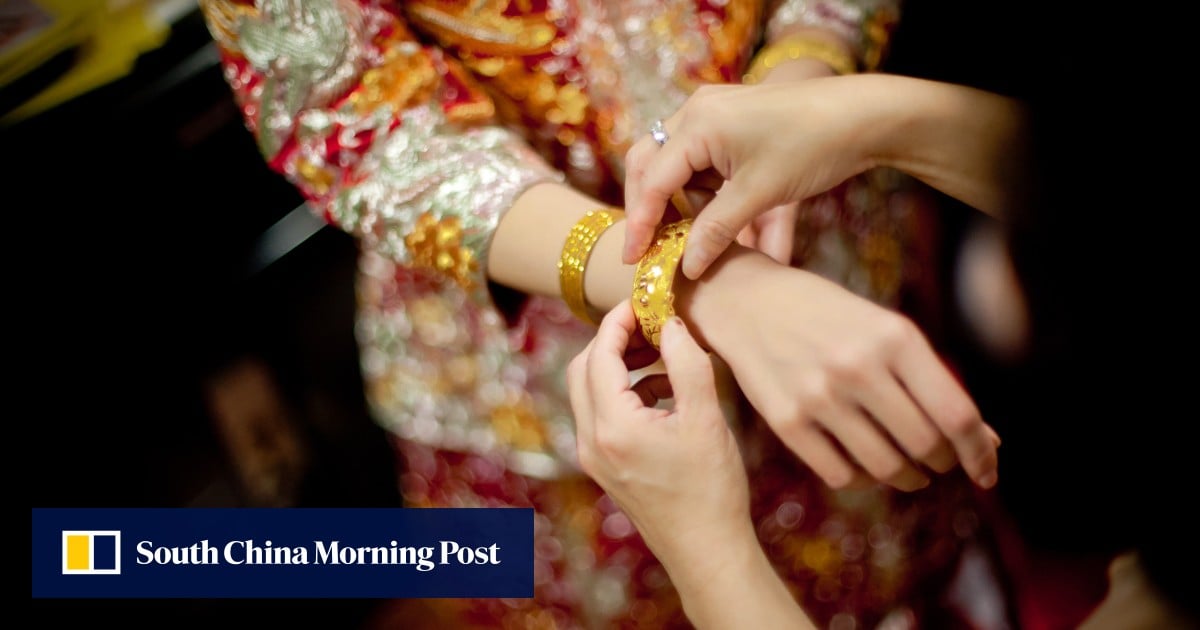
Gold symbolises fortune, power and longevity in Chinese culture, so it is no surprise that for generations items made from the precious metal have been the most popular gift for wedding couples.
Gold accessories and jewellery have been part of Chinese culture since ancient times, although in the past only royalty and dignitaries could afford it.
Dr Michael Kam, of Hong Kong Baptist University’s faculty of arts and social sciences, who wrote Retracing the History of Traditional Jewellery Production in Hong Kong, says the first record in China of gold accessories being presented as betrothal ceremony gifts goes back to the Ming dynasty (1368 to 1644).
According to the Xiangshan County Chronicle: “Betel nut is a most important wedding gift in Xiangshan. [The] wealthier groom’s family will give the bride valuable gifts such as gold, silver and clothing as the betrothal ceremony gift; the dowry of the rich bride’s family is even more costly than the groom’s gift, it is often several times more expensive than the groom’s wedding gift.”
Kam says the groom would present a range of gifts including gold jewellery, which symbolises good fortune and reflects his family’s status and financial power.
Gold jewellery was also an essential part of the bride’s dowry. It acted as a sort of insurance against unexpected financial hurdles. The bigger the dowry, the more respect the bride commanded in her new family, since she showed financial security.

